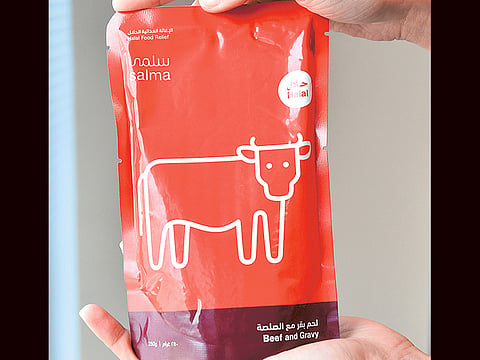Donation campaign for Salma food relief project launched
Awqaf and Minors Affairs Foundation (AMAF) launched the donation campaign on Thursday

Dubai: People can now donate to Salma food relief project, a programme that aims to produce and distribute one million long-life halal meals to victims of manmade and natural disasters in 2015.
Awqaf and Minors Affairs Foundation (AMAF) launched the donation campaign for the Salma food relief project on Thursday.
The project is named after the first Emirati nurse Salma Al Sharhaan (1934-2014), who dedicated her life to help those in need in Ras Al Khaimah rural areas. It has been set up as a Sharia-compliant endowment (waqf) to enable people to send meal contributions to deprived areas in a transparent sustainable and cost-effective way.
Hussain Al Qemzi, Chairman of AMAF said the food supplied by the Salma project are 100 per cent halal, which is supplied from New Zealand, one of the largest exporters of Halal meat in the world.
The Salma branded packaging is made of the same material NASA uses for their space-age pouches designed to withstand extreme conditions and preserve the food for up to three years.
“What makes our product special is that it is always ready. It is a full meal you just open it and eat it. It solves the problem that the UN faced as the food they distributed was raw and needed to be cooked. Many disaster victims lost their houses and don’t have the means to cook them,” said Qemzi.
Following its launch in 2014 by His Highness Shaikh Mohammad Bin Rashid Al Maktoum, Vice President and Prime Minister of the UAE and Ruler of Dubai, nearly 200,000 meals were shipped to people in Gaza in partnership with the United Nations Relief and Works agency and Dubai Humanitarian City.
“In addition to distributing meal pouches, we also hope to sell them to other organisations and the money made will be kept and used at a later stage to ensure long-term success of the programme as it is based on sustainable Waqf that depends on donations in the first phase until it becomes financially self-reliant,” said Al Qemzi.
Abdul Wahab Soufan, director of the Salma project at AMAF, also said the profits generated from processing secondary products from cattle such as wool, leather and fat will be directed towards the project’s Waqf programme in order to save operational and administrational costs and ensure financial development and sustainable food aid.
Each meal distributed costs no more than Dh10 and contains 200gm of food. Red meat makes up the majority of the meal in the first phase while halal chicken and vegetarian meals will be produced at later stages.
Sign up for the Daily Briefing
Get the latest news and updates straight to your inbox



